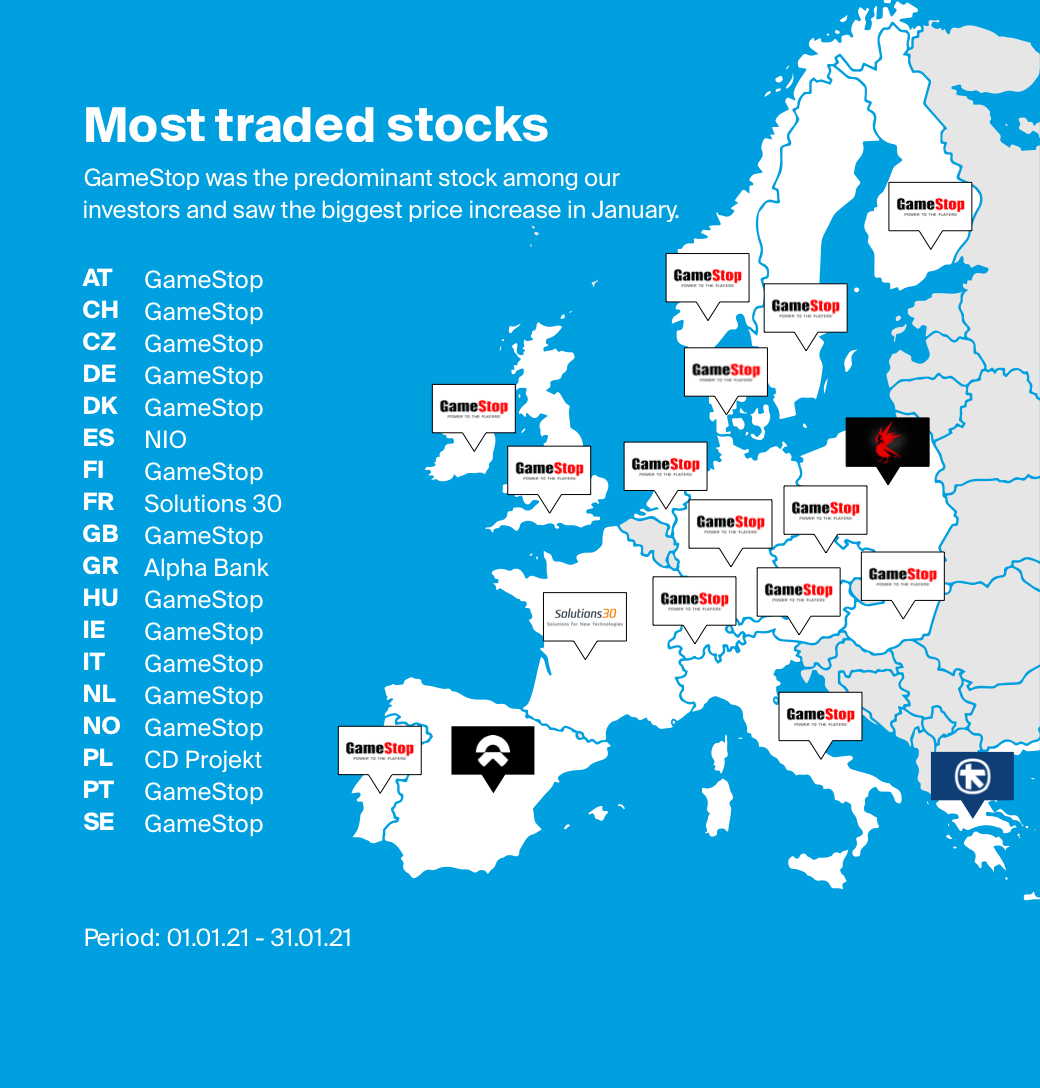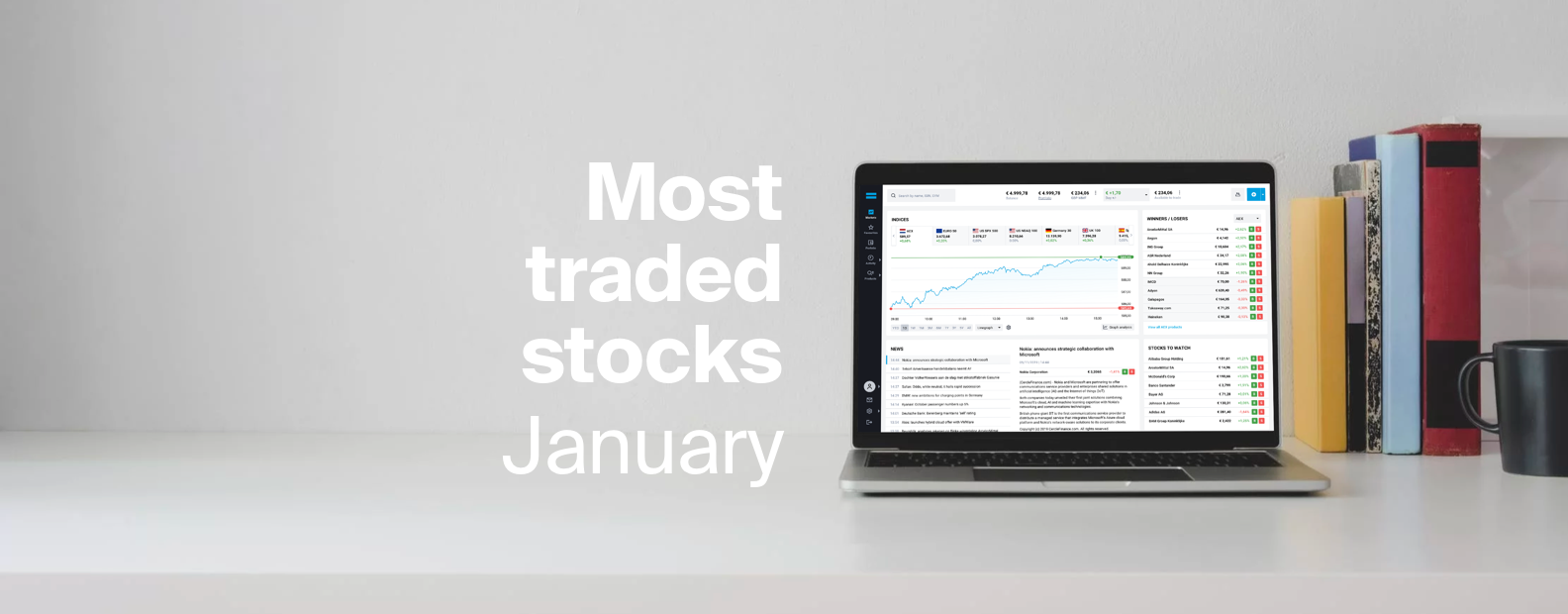The end of January marks the end of the first month of trading of the year. The S&P 500 and the EURO STOXX 50 both posted losses, ending January down by 1.11% and 2.52% respectively.
In this article, we discuss the companies that made an appearance on the map for the first time this year and share January’s biggest winner and loser.

Newcomers on the map
While we see some companies on the map month after month, two companies were traded the most for the first time, making their debut on our map.
GameStop
GameStop made headlines in January as it shook up the financial markets. GameStop is an American gaming retailer, and its prices increased by 1,625.05% last month. In case you haven’t been following GameStop’s wild ride, we provide a brief explanation.
To understand what is happening, you first need to know what a short squeeze is. A short squeeze primarily negatively affects short sellers, which are investors who have sold shares without actually owning them. These investors believe that stock prices will decrease and hope to buy back at a lower price, making the difference in profit. When prices sharply increase due to news or any other reason, a large volume of short-sellers buys back the stock to minimise losses, pushing the price of the stock up even more. Essentially, the short-sellers are ‘squeezed’ out of their positions.
In GameStop’s case, certain hedge funds were betting that GameStop’s stock price would decrease. The company had been struggling, especially amid the Covid-19 pandemic. More than 100% of GameStop’s stock was shorted at one point, meaning more people were shorting the stock than there were shares available in the market.
A forum on Reddit with over 3.4 million users began talking about GameStop after the founder of pet-supply chain Chewy, Ryan Cohen, invested in GameStop and became a board member. Reddit users and other retail investors then bought GameStop stocks or options, driving the price up. Stock prices soared and GameStop’s market cap increased from $1.4 billion to almost $23 billion as of January 29th.
Due to the extreme volatility, placing a Market order might result in executions at unintended prices. This is why Market orders for these products have temporarily been disabled.
Trading in such volatile stocks comes with a high level of risk. We advise you to only invest in financial products that match your knowledge and experience. Don’t invest all your money in the same product and make sure your portfolio is well diversified.
Solutions 30
Solutions 30 also made an appearance on our map for the first time. It is a French-listed, Luxembourg-based company that specialises in IT repair services for individuals and businesses. Prices were down by 3.61% at the end of January.
Biggest movements
As mentioned, GameStock’s prices increased by 1,625.05%, making it January’s winner out of the stocks on the map. On the losing end was Alpha Bank, with prices dropping by 20.86%.
The information in this article is not written for advisory purposes, nor does it intend to recommend any investments.
Deemed authorised and regulated by the Financial Conduct Authority. The nature and extent of consumer protections may differ from those for firms based in the UK. Details of the Temporary Permissions Regime, which allows EEA-based firms to operate in the UK for a limited period while seeking full authorisation, are available on the Financial Conduct Authority’s website.
Sources: Bloomberg, Financial Times, New York Times, Morningstar, Forbes



